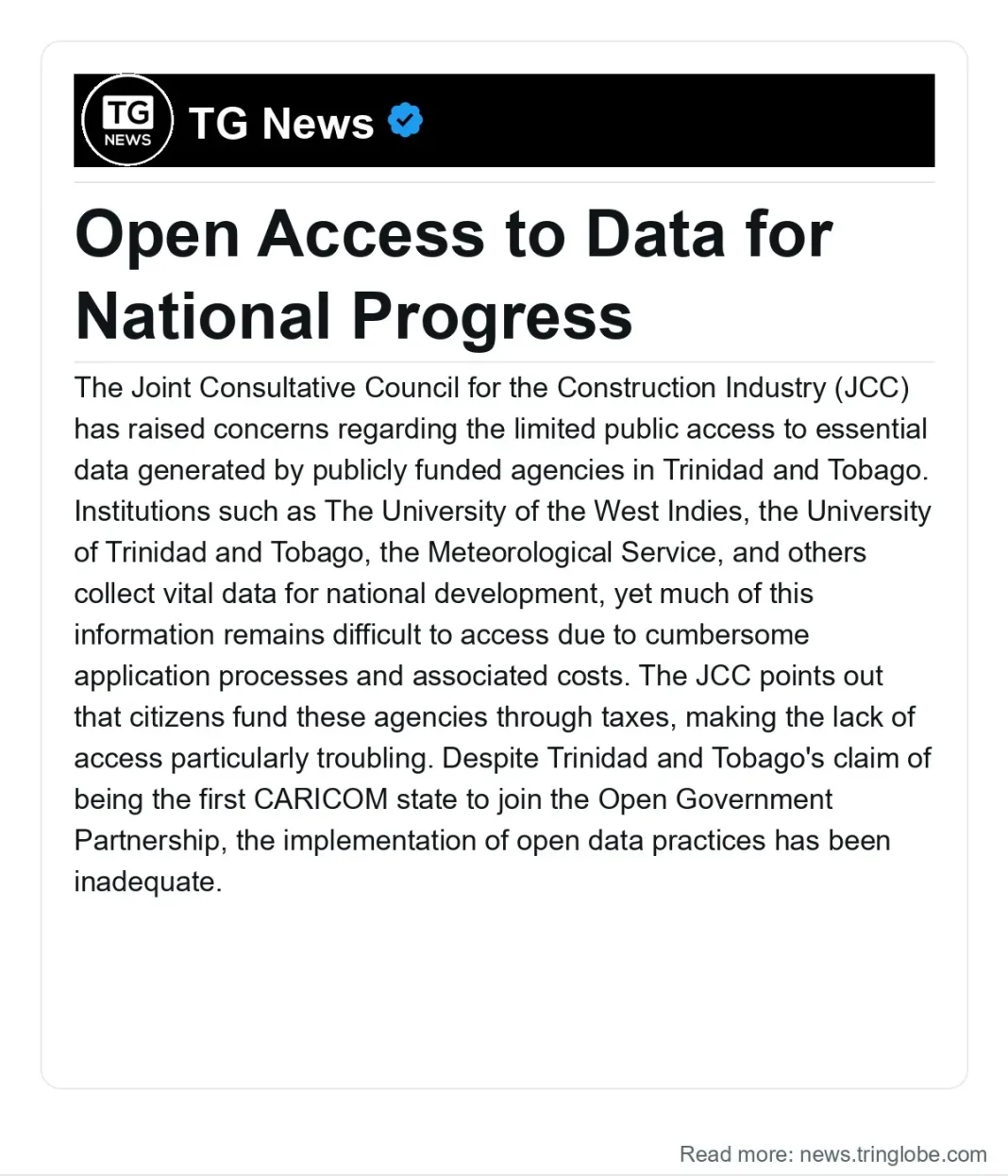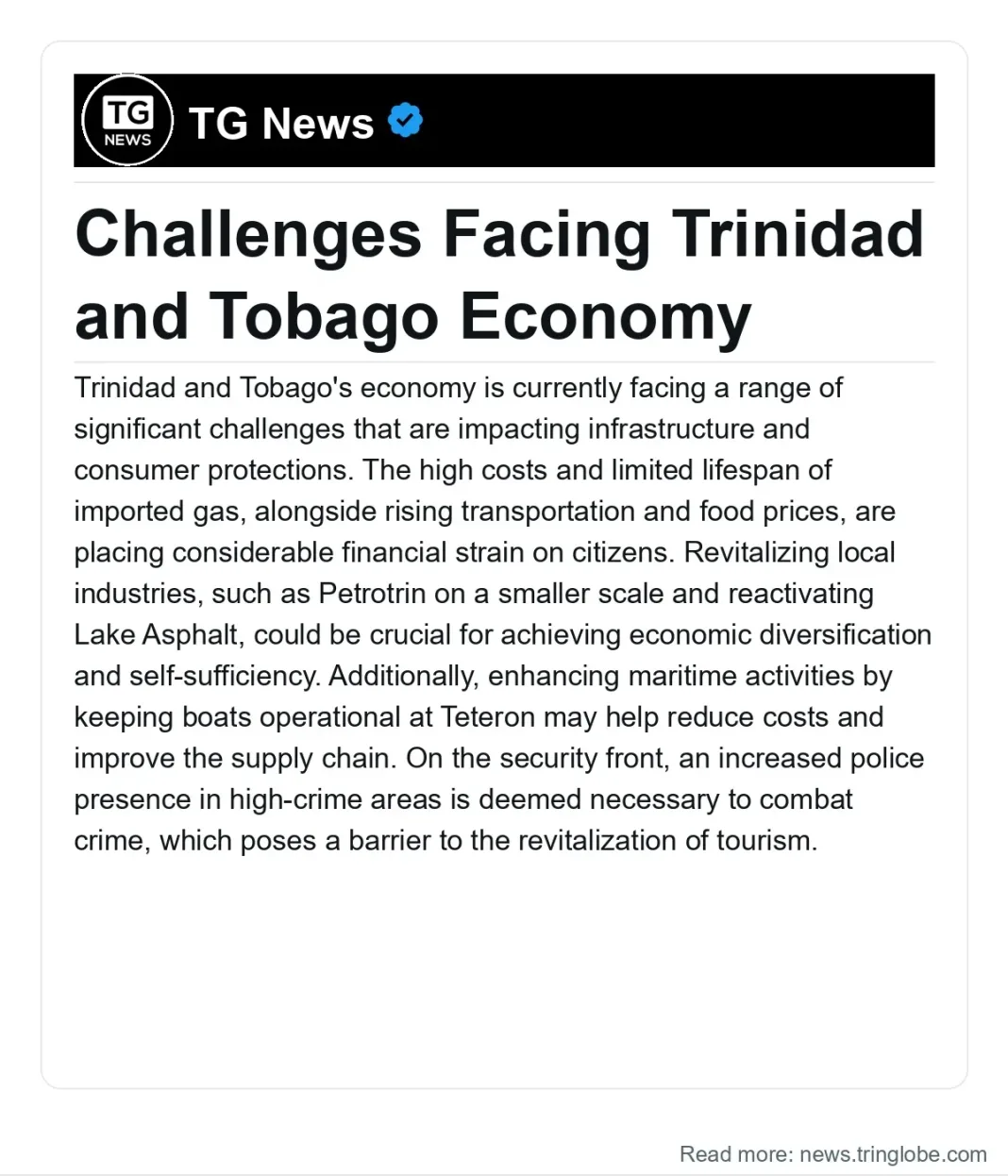This report covers trinidad tobago: open access with key details and context.
This report covers trinidad tobago: open access with key details and context.
The Joint Consultative Council for the Construction Industry (JCC) has raised concerns regarding the limited public access to essential data generated by publicly funded agencies in Trinidad and Tobago. Institutions such as The University of the West Indies, the University of Trinidad and Tobago, the Meteorological Service, and others collect vital data for national development, yet much of this information remains difficult to access due to cumbersome application processes and associated costs.
The JCC points out that citizens fund these agencies through taxes, making the lack of access particularly troubling. Despite Trinidad and Tobago’s claim of being the first CARICOM state to join the Open Government Partnership, the implementation of open data practices has been inadequate. The JCC emphasizes that many leading economies have benefited from open government data, which has spurred job creation, improved transparency, and fostered economic growth.
Research from the OECD indicates that strategic reuse of public datasets can lead to GDP growth ranging from 0.4% to 1.4%. The JCC argues that open access to data could invigorate local entrepreneurship, enhance public oversight, and strengthen the education sector. They cite the Office of Procurement Regulation (OPR) as a successful example of open data practices, which has fostered trust and accountability in procurement processes.
trinidad tobago: open access: key developments so far.
The JCC calls for systemic reforms to ensure that all government-funded agencies release their datasets freely, with exceptions only for legitimate privacy or security concerns. They urge policymakers and civil society to support these changes, emphasizing that the democratization of public data is essential for national progress and innovation in the digital era.
In addition to the economic benefits, the JCC believes that open access to data can lead to better decision-making by both the government and the public. By making data available, citizens can engage more effectively in governance and hold public officials accountable. The JCC highlights that transparency in data can lead to increased public trust in government institutions.
Furthermore, the JCC suggests that open data can enhance collaboration between various sectors, including academia, private enterprises, and non-governmental organizations. This collaboration can lead to innovative solutions to pressing national issues, as diverse stakeholders can leverage shared data to address challenges in areas such as health, education, and infrastructure.
The JCC’s advocacy for open data aligns with global trends where countries are increasingly recognizing the value of accessible information. They argue that Trinidad and Tobago should not lag behind in this regard, as the potential for economic and social advancement is significant. The JCC is calling for a national dialogue on this issue, inviting stakeholders from all sectors to contribute to the conversation about how to improve data accessibility.
In conclusion, the JCC asserts that the path to national progress in Trinidad and Tobago is closely linked to the availability of open data. They encourage a collective effort to reform data access policies, ensuring that the benefits of public datasets can be realized by all citizens, ultimately contributing to a more informed and engaged society.


